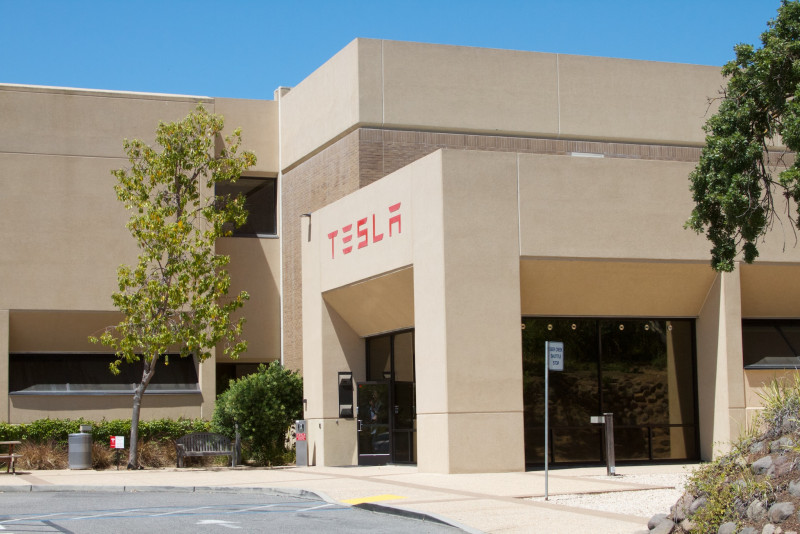Tesla, Inc. is a multinational company focused on electric vehicles and clean energy solutions. Headquartered in Austin, Texas, Tesla designs, manufactures, and sells battery electric vehicles (BEVs), stationary battery energy storage systems, solar panels, and solar shingles, along with related products and services. The company is a prominent player in the automotive industry, specifically within the electric vehicle sector, and also actively participates in the development and deployment of renewable energy technologies.
February 2012: Model X prototype shown
In February 2012, a prototype of the Tesla Model X was first shown. The Model X is a mid-size luxury crossover SUV.
June 2012: Model S deliveries started
In June 2012, deliveries of the Tesla Model S began. The Model S is a full-size luxury car.
2014: Destination Chargers network launched
In 2014, Tesla launched its network of "Destination Chargers" for locations where customers stay for several hours. Tesla initially provided free charging equipment and covered installation costs.
September 2015: Model X deliveries started
In September 2015, deliveries of the Tesla Model X began. The Model X shares around 30 percent of its content with the Model S.
April 2016: Model S design refresh
In April 2016, the Tesla Model S received a major design refresh, introducing a new front-end design.
2016: Tesla acquires SolarCity
In 2016, Tesla acquired SolarCity, a solar energy company, and merged it with its existing battery energy storage products division to create Tesla Energy.
June 2017: AAA raises rates for Tesla owners
In June 2017, the American Automobile Association (AAA) raised rates for Tesla owners after a report concluded that Tesla vehicles crashed more often and were pricier to repair than comparable vehicles.
July 2017: Model 3 deliveries started
In July 2017, deliveries of the Tesla Model 3 began. The Model 3 is designed to be more affordable than the luxury Model S sedan.
November 2017: Tesla Semi prototype shown
In November 2017, two prototype Tesla Semi trucks were first shown. The Tesla Semi is a Class 8 semi-truck.
November 16, 2017: Second generation Roadster unveiled
On November 16, 2017, Tesla unveiled the second generation Tesla Roadster with a purported range of 620 miles.
December 2018: Over 250,000 Model S and Model X vehicles sold
As of December 2018, more than 250,000 Tesla Model S and Model X vehicles had been sold. Tesla merged production numbers for the Model S and Model X.
March 2019: Model Y prototype shown
In March 2019, a prototype of the Tesla Model Y was first shown. The Model Y is designed to be more affordable than the luxury Model X SUV.
November 2019: Cybertruck first announced
In November 2019, the Tesla Cybertruck was first announced. It is a full-sized pickup truck.
March 2020: Model Y deliveries started
In March 2020, deliveries of the Tesla Model Y began. The Model Y shared around 75 percent of its content with the Model 3.
January 2021: Panasonic produces 39 GWh of batteries for Tesla
In January 2021, Panasonic had the capacity to produce 39 GWh per year of 2170-type battery cells with a nickel-cobalt-aluminum cathode chemistry for vehicles built at the Tesla Fremont Factory, at Gigafactory Nevada. Tesla Energy also uses 2170 cells in its Powerwall home energy storage product.
March 2021: Tesla Energy manages over 1.2 GWh of storage
In March 2021, Tesla Energy said its online products were managing over 1.2 GWh of storage for large-scale customers.
June 2021: Model 3 cumulative sales passed 1 million
In June 2021, cumulative sales of the Tesla Model 3 passed 1 million.
June 2021: Model S interior revision
In June 2021, the Tesla Model S underwent another design refresh, revising the interior.
2021: Tesla acts as independent insurance producer
Since 2021, Tesla has been acting as an independent insurance producer as Tesla Insurance Services, Inc.
December 1, 2022: Tesla Semi initial deliveries
On December 1, 2022, initial deliveries of the Tesla Semi were made to PepsiCo.
January 2023: Tesla offers insurance in multiple U.S. states
As of January 2023, Tesla offers insurance in the U.S. states of Arizona, California, Colorado, Illinois, Maryland, Minnesota, Nevada, Ohio, Oregon, Texas, Utah and Virginia. The company also offers insurance for non-Tesla vehicles owned by Tesla owners.
July 2023: Cybertruck pilot production began
In July 2023, pilot production of the Tesla Cybertruck began, after multiple delays.
September 2023: Model 3 design refresh
In September 2023, the Tesla Model 3 underwent a major design refresh which revised the exterior and interior.
November 30, 2023: Cybertruck deliveries began
On November 30, 2023, deliveries of the Tesla Cybertruck began. The Cybertruck's exterior design earned a notably polarizing reception.
2023: Tesla Energy deploys 14.7 GWh of battery storage
In 2023, Tesla Energy deployed 14.7 gigawatt-hours of battery energy storage products, an increase of 125% over 2022. However, deployed solar energy systems decreased by 36% over 2022.
2023: Hilton to install 20,000 Destination Chargers
In 2023, hotel chain Hilton Worldwide announced an agreement with Tesla to install 20,000 Destination Chargers across 2,000 of its properties in North America by 2025.
2023: Model Y becomes world's best-selling car
In 2023, the Tesla Model Y outsold the Toyota Corolla to become the world's best-selling car, marking the first time an electric vehicle has claimed the title.
March 2024: Tesla's Largest Shareholders
In March 2024, the top 10 largest shareholders of Tesla, Inc. were identified.
April 15, 2024: Tesla secures chip supply deal with Tata Electronics
On April 15, 2024, Tesla secured a deal with Tata Electronics to supply semiconductor chips, marking a significant step in Tesla's expansion into India's automotive market.
April 2024: Tesla plans full Semi production in late 2025
Tesla stated in April 2024 that it plans full production of the Semi in late 2025.
May 2, 2024: Tesla abandons next-generation gigacasting plan
On May 2, 2024, Tesla announced that it has abandoned its plan for next-generation gigacasting, opting for its more proven method of casting vehicle underbodies in three pieces.
July 2024: Roadster production expected in 2025
In July 2024, Elon Musk said that the Tesla Roadster should enter production in 2025.
July 2024: Next-generation vehicle expected in 2025
In July 2024, Elon Musk said that the Tesla next-generation vehicle should be available for delivery in the first half of 2025.
October 2024: Cybercab concept unveiled
In October 2024, a concept version of the Tesla Cybercab was unveiled, with 20 prototypes providing short rides to attendees of the announcement event.
October 2024: Robovan announced
In October 2024, the Tesla Robovan, an electric autonomous van, was announced. The vehicle is being designed to carry up to 20 passengers.
October 2024: Tesla operates 1,306 retail locations globally
As of October 2024, Tesla operates 1,306 retail stores, galleries, service, delivery and body shop locations globally. Tesla states it does not want to make a profit on vehicle servicing.
November 2024: Tesla offers six vehicle models
As of November 2024, Tesla offers six vehicle models: Model S, Model X, Model 3, Model Y, Semi, and Cybertruck. The first-generation Tesla Roadster is no longer sold, but plans exist for a second-generation Roadster, the Cybercab, and the Robovan.
December 2024: Elon Musk's pay package rejected
In December 2024, a Delaware court rejected Elon Musk's $56 billion pay package from Tesla, citing that it was not properly approved by the company's board after a lawsuit by Tesla shareholders.
February 2025: Tesla sales and stock decline due to Musk's politics
In February 2025, Tesla experienced significant declines in stock price and European sales due to Elon Musk's political advocacy, with correlation between Musk's ties to Donald Trump and decreasing views of Tesla. This triggered protests, vandalism and attacks on Tesla stores and charging stations.
March 10, 2025: Tesla stock price drops 15%
On March 10, 2025, Tesla's stock price dropped by 15% due to Elon Musk's political advocacy.
2025: Hilton to install 20,000 Destination Chargers
Hotel chain Hilton Worldwide has an agreement with Tesla to install 20,000 Destination Chargers across 2,000 of its properties in North America by 2025. This was announced in 2023.
Mentioned in this timeline
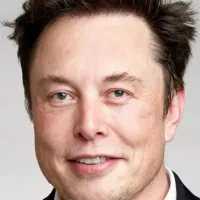
Elon Musk is a businessman and entrepreneur who leads Tesla...
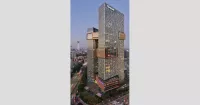
Tencent is a Chinese multinational technology conglomerate headquartered in Shenzhen...
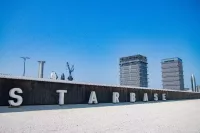
SpaceX founded in is a private American aerospace manufacturer and...
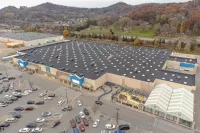
Walmart Inc is a multinational retail corporation operating hypermarkets discount...

Google LLC is a multinational technology company specializing in online...
California is a U S state on the Pacific Coast...
Trending
45 minutes ago Zimbabwe launches HIV prevention drug Lenacapavir; Kenya to roll out HIV shots.

45 minutes ago Tami Roman Shines in 'Double Double Trouble' Premiere on Lifetime Channel
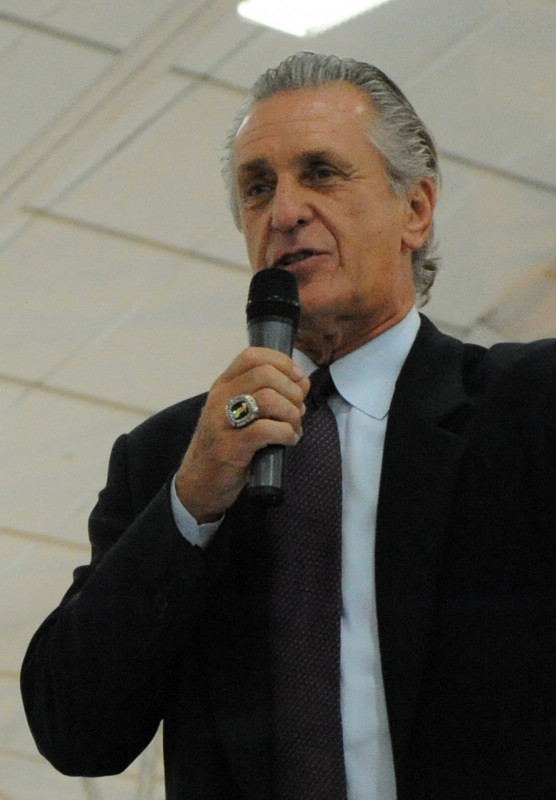
46 minutes ago Pat Riley Honored with Statue Outside Lakers' Arena, Cementing Legacy.
46 minutes ago Sheldon Creed Secures First Career Win at EchoPark Speedway in O'Reilly Race.
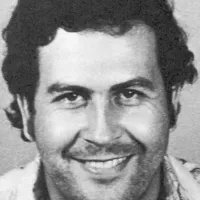
46 minutes ago Pablo Escobar's hippos dung art, narco recruitment in Mexico on the rise.
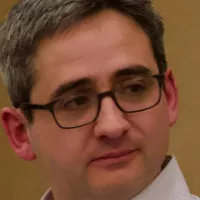
2 hours ago Cavaliers defeat Hornets 118-113: Game recap and key takeaways from the match.
Popular

Jesse Jackson is an American civil rights activist politician and...

Barack Obama the th U S President - was the...

Bernie Sanders is a prominent American politician currently serving as...

Michael Joseph Jackson the King of Pop was a highly...
WWE Raw a professional wrestling television program by WWE airs...
The Winter Olympic Games a major international multi-sport event held...
